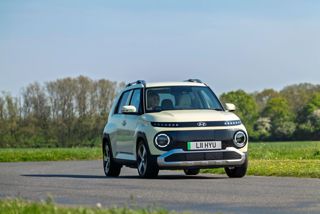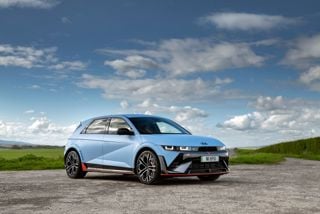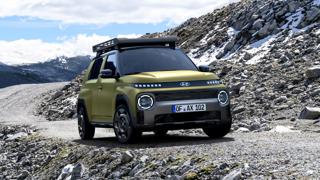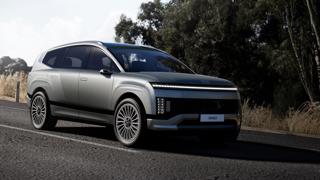Hyundai is aiming to increase its fleet registrations by up to 6% this year, with SMEs and Motability driving growth.
Many of these extra sales will be generated through the launch of new models, but the manufacturer is hoping its investment in improving residual values and reducing service, maintenance and repair costs will also help win new business.
Last year, the manufacturer registered 42,406 cars to fleets for a 3.77% market share – an increase of 1,522 registrations over 2013.
“Although we are not looking for fleet to increase dramatically, overall fleet sales will increase by 2,000 to 2,500 cars this year,” said Martin Wilson (pictured), fleet director at Hyundai.
“We are looking for sustainable growth and will, in fact, reduce our rental car commitment.
“We are not moving out of rental, we are just having a much more balanced approach to the sectors we are selling in.”
Hyundai launched its new i20 five-door supermini in January. An i20 coupé will follow later this year, and a revised i30 arrives in March, with a facelifted i40 a month later.
“The launch of cars is non-stop, but that’s good because we’ve always got something to talk to customers about,” said Wilson.
He expects the SME sector to provide growth, as evidenced by the performance of the manufacturer’s white label leasing product Hyundai Contract Hire.
In 2013, the carmaker sold 900 cars through that channel. Last year it was nearer 1,800, and Wilson wants this to be closer to 2,300 or 2,400 in 2015.
Wilson said the manufacturer’s growth reflected the work it has done to improve residual values, including recruiting Geraint Isaac as national RV and wholelife cost manager last year.
“Residual values are absolutely key for me,” said Wilson. “We have a residual value strategy for every new product and that includes positioning of the cars, cars to market surveys and really getting the pricing guides’ input at an early stage.
“A perfect example of that is i20. We’ve improved residual values from the old model to the new one by anywhere between 7% and 10%.
“We had the same strategy for the i10 when it launched last year and it worked then too – the UK had the best RVs for i10 in Europe.
“The improved RVs allow us to compete in certain sectors we weren’t able to before, such as leasing, public sector and salary sacrifice.”
The work to reduce SMR costs included streamlining its part-pricing and service schedules.
“We’ve gone from a mish-mash of service intervals to having all our main fleet vehicles at two years/20,000 miles, so the reduction in SMR costs on the back of that is considerable.”
Tony Whitehorn, president and chief executive of Hyundai Motor UK, has outlined his short-, medium- and long-term plans for the brand in the UK.
In the short-term, the Korean brand is targeting 100,000 annual registrations (2014 registrations: 81,996). Its medium-term goal is to have a 5% market share (2014: 3.3%) and, in the long-term, the company aims to be among the top five manufacturers in the UK.
Whitehorn is looking for 7% growth to 88,000 registrations (fleet and retail) this year in a “flat market”.
























Login to comment
Comments
No comments have been made yet.